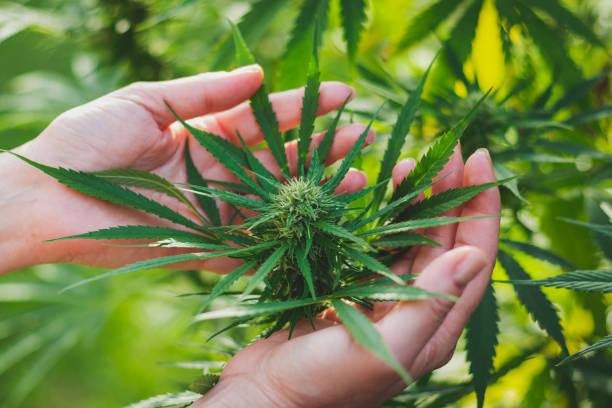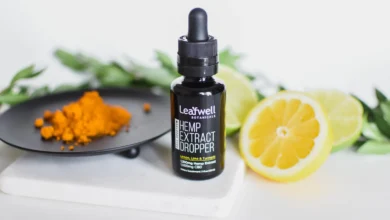Hexahydrocannabinol vs Delta 9 THC

Hexahydrocannabinol is an active ingredient in marijuana, a psychoactive substance that is used to treat nausea and stimulate appetite.
HHC is popular, but Delta 9 THC is the form of THC that is most widely used for medicinal purposes.
Table of Contents
Who created Hexahydrocannabinol
Hexahydrocannabinol is one of over 400 compounds found in the cannabis plant. THC was first isolated by Dr. Raphael Mechoulam and his team at Hebrew University of Jerusalem in 1964.
Delta 9 THC is a combination of two molecules: Delta 1,9-tetrahydrocannabinol (THC) and Delta 2,6-dimethylheptane-1,7-diol (DMH).
Who Created Delta 9 THC?
HHC was founded by Dr. Raphael Mechoulam and his team at Hebrew University of Jerusalem in 1994, where they continue to study the molecular structure and activity of the cannabis plant today.
Hexahydrocannabinol is a psychoactive substance found in cannabis. It can be found in hemp and marijuana.
Delta 9 THC is the cannabinoid that comes from Tetrahydrocannabinol (THC).
When THCa is sprayed onto the surface of the plant it turns into Delta 9 THC.
Hexahydrocannabinol has many benefits, but it can be very dangerous if inhaled or ingested.
What is Delta 9 THC?
Delta 9 THC is a chemical compound that has been identified in the cannabis plant. It mainly occurs in the flowers and resins of the plant, but can also be found in the plant’s leaves, seeds and stems. Delta 9 THC is non-psychoactive, meaning it does not produce any effects on your body that are similar to those produced by marijuana.
Hexahydrocannabinol, or HHC, is a great alternative to Delta 9 THC. What is Hexahydrocannabinol? HHC offers a different formula and molecular structure than Delta 9 to provide the same great effects with less of the negative side effects.
What is Delta 9 THC? Delta 9 Tetrahydrocannabinol (THC) is the main active ingredient in cannabis that creates the euphoric high associated with marijuana.
Who Created Hexahydrocannabinol? The idea for HHC was created by Roger Adams, who wanted to offer a product that gave people the same benefits as Delta 9 without all of the negative side effects.
Is Delta 9 THC Safe?
While you may experience some positive effects from using products with Delta 9 THC, it does come with many negative side effects including anxiety and paranoia, disorientation, red eyes/dry mouth, increased appetite, memory loss/slow reaction time, increased heart rate and blood pressure and more. Is Hexahydrocannabinol Safe? While there are fewer studies on HHC due to its recent
You may have heard of THC, or even Delta 9 THC, but what exactly is Hexahydrocannabinol? Read on for the answers to all your questions.
What is Hexahydrocannabinol?
Hexahydrocannabinol, also known as HHC [or Roger Adams HHC], is a cannabinoid, which is any compound that acts on cannabinoid receptors in cells that alter chemical messages in the brain. Cannabinoids have been shown to help relieve symptoms of multiple conditions, including inflammation and chronic pain. The most widely known cannabinoid is tetrahydrocannabinol (THC), which is responsible for the euphoric “high” in marijuana.
Hexahydrocannabinol has long been used as a natural sleep aid and pain reliever. It was first synthesized in the 1960s by Raphael Mechoulam at The Hebrew University of Jerusalem and Yechiel Gaoni at Weizmann Institute of Science. They set out to study THC but found that the structure was too complex to be synthesized in a laboratory; however, they were able to synthesize several other cannabinoids using simpler structures. One of these cannabinoids was hexahydrocannabinol, which can be extracted from marijuana plants. Like other cannabinoids
Hexahydrocannabinol (HHC) is a cannabinoid produced by cannabis plants. It is one of the most abundant cannabinoids found in the cannabis plant.
HHC is also known as Delta 9 THC and is psychoactive. HHC is responsible for producing euphoric effects and feelings of being “high”.
Roger Adams created HHC. The scientists mission was to provide products that result in positive outcomes without unwanted side effects.
HHC has been evaluated by the World Health Organization (WHO) program on Drug Dependence and deemed safe.
Hexahydrocannabinol (HHC) is a cannabinoid found in marijuana plants. It is one of the many cannabinoids found in marijuana plants, but the effects it has on the body are unlike any other.
HHC was created by chemist Dr. Leopoldo Zambrana. In 1972 Dr. Zambrana used a patent to create THC from other cannabinoids found in marijuana plants. The process he used is called hexane extraction, which is why it’s called HHC.
HHC does not produce any psychoactive effects and has been proven to be non-toxic for humans and animals. It doesn’t have any negative side effects like anxiety or irritability.
Unlike Delta 9 THC, HHC doesn’t bind to CB1 receptors which are located in the brain and central nervous system or CB2 receptors which are located in the peripheral nervous system (muscles and organs). Instead, HHC binds to GPR55 receptors in your body. These receptors are mainly located in your brain, spleen, thymus gland, lungs, uterus, ovaries and prostate gland.
This is what makes HHC different than Delta 9 THC. Hexahydrocannabinol or THC, is a chemical compound found in cannabis plants. Because of its psychoactive properties, manufacturing or extracting THC is illegal in most countries.
However, it is used medicinally to treat pain and nausea. In the right dosage, it can also help people with anxiety, depression and sleep problems. The effects of THC are almost immediate and can last for a few hours.
The human body naturally produces endocannabinoids that interact with cannabinoid receptors in the brain. Cannabis plants produce phytocannabinoids, which include both cannabidiol (CBD) and THC. While CBD isn’t psychoactive, THC can have an intoxicating effect on the user.
THC was first synthesized in 1964 by Dr Raphael Mechoulam at the Weizmann Institute of Science in Israel. It was shortly after this discovery that Canadian scientist Dr Roger Adams discovered THC’s presence in the cannabis plant itself.




